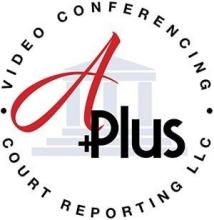We are now accepting session proposals for CALIcon23.
For over 30 years, CALIcon, The Conference for Law School Computing®, has organized its schedule at nearly the last minute in order to bring the most relevant and up-to-date presentations to attendees. This year is no different and we are looking for law school faculty, librarians, and technologists with strong opinions, great ideas, interesting projects, and useful advice. Come and share and be challenged.
For 2023 we are planning the conference as an in-person, live event. We will gather at Penn Carey Law School in Philadelphia PA on Thursday and Friday June 15 - 16, as well as providing a live stream of the full conference. We're combining the formula that we've used the past couple of years with our tried and true structure that worked well for us prior to 2020. This means that we're going to have 60 minute long sessions with thirty minute breaks between sessions. Each session will consist of up to 3 15 minute talks with 15 minutes for discussion. We're also accepting 30 and 45 minute long proposals to accommodate more in-depth talks and panels.
We are planning to bring back concurrent sessions to CALIcon this year but that depends on the number of proposals submitted. We'll need 40+ sessions to successfully bring back our multi-room format so we need your session proposal. If your session is accepted, you should be prepared to present live in Philadelphia.
The theme for CALIcon23 is Forging the future of legal education. While we would like proposals to work with that theme we are, as always, flexible. The community has a voracious appetite for tech and the conference has always been the place to talk about it. Here are some topics that we think are particularly relevant today, but don’t be constrained by this list …
- ChatGPT & other openai.com APIs: Changing legal education? Good, bad?
- AI/ML, ethics, law, and legal education
- Access to Justice / Teaching / Technology / Legal Education
- Prepping law school tech for the NextGen bar exam
- Navigating the relationship with IT - Local and University
- Video Post Production - Tips & Tricks & Tools
- I want to talk about Drupal or Regex or Python
- Why isn’t there more formative assessment in law school courses?
- What should we do to prepare for the NEXT pandemic?
- Peer-grading software options - can students become the teacher?
- Open casebooks, open teaching materials, open syllabi - what’s not to like?
- LSSE says law students like/learn online just fine.
- Online Legal Education that is not just JD - MLMs, LLMs, foreign and domestic, insourced and outsourced
- Is 2023 the year of Tech Competency for Lawyers?
- Can I ignore VR for a few more years?
- What’s beyond Zoom? (beyond polling, breakout rooms, and boring video)
- Should all law students learn to program/blog/toot - at least a little?
To submit a session proposal, create an account on the 2023 conference website, verify it and log in, and then click on the Propose a Session button on any page. This account is not tied to any other CALI login credentials. You must submit your proposal by Friday, April 7, 2023. Presenters will be notified by Friday, April 14, 2023 if their presentation is accepted.
Accepted speakers will be able to register for $95 with a special code that will be sent when your session is accepted.
Questions, problems, ideas, suggestions, contact Elmer Masters - emasters@cali.org.
Read more articles
Make another choice: do analytic tools affect research behavior?
Another demo, another claim that legal analytics help lawyers make important decisions about filing motions. But what does "this judge grants motions to dismiss in 31% of their cases" really mean? Have analytics affected lawyer and legal research behavior? And if we can't answer that question, what can these analytics really do for researchers?
In this session, I'll demonstrate legal analytics, showcase information about what effect these analytics have had, and what our knowledge (or lack thereof) might tell us about how newer AI tools might affect researcher behavior in the future.
Court Reporting
The essay was quite well written and it offered information regarding the Call for Speakers. People who, like myself, are interested in acquiring more understanding about it can find it to be of great benefit if they use it. You must also check out Aplusreportingservice.com it has some great insights too.


